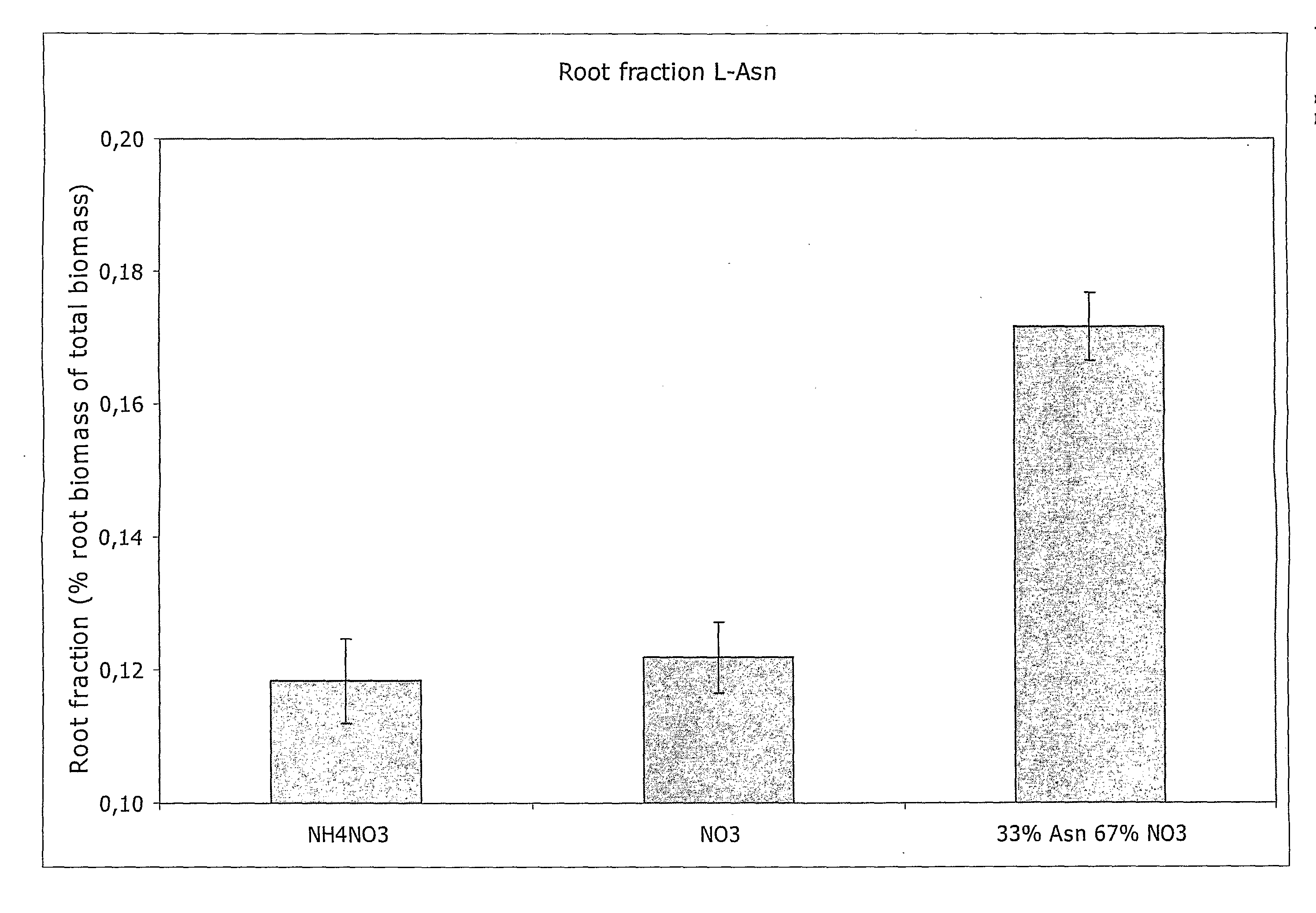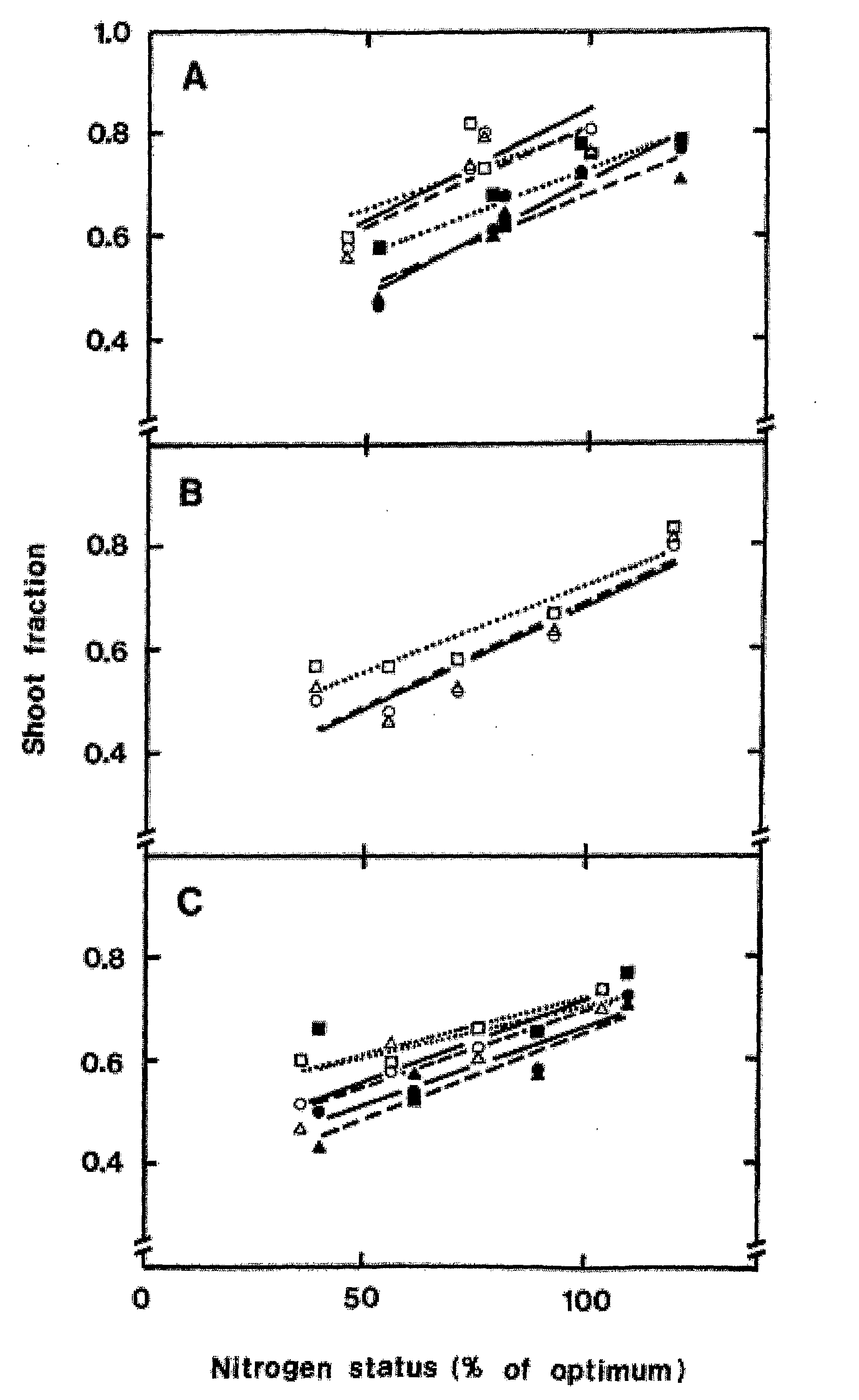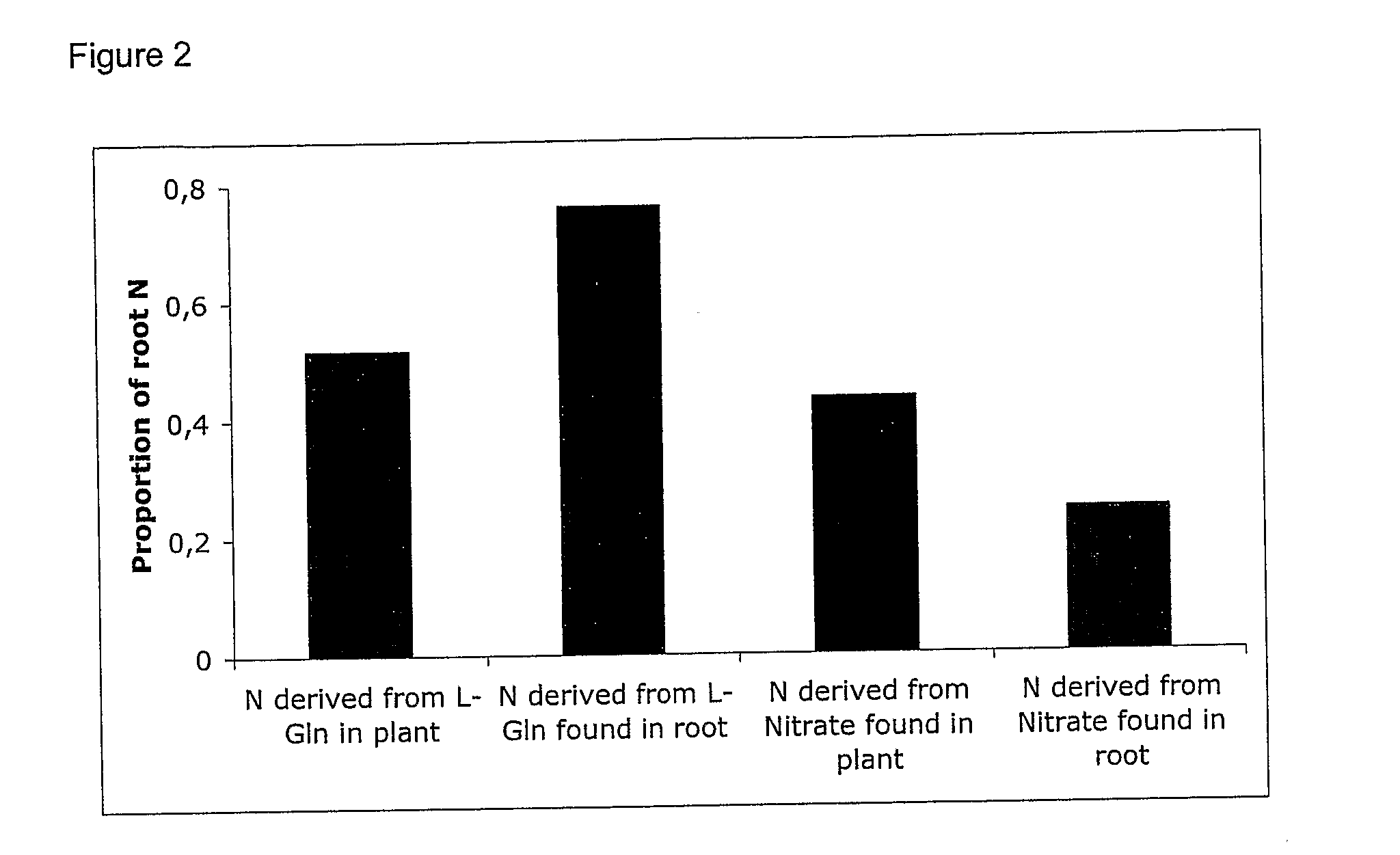Use of a fertilizer containing l-amino acid for improving root growth and growth of mycorrhiza
a technology of lamino acid and root growth, which is applied in the direction of application, biocide, nitrogenous fertilisers, etc., can solve the problems of incompatible plant cultivation efficiency, high and unbalanced shoot mass fraction, imbalanced allocation, etc., and achieve the effect of stimulating root growth and stimulating the growth of the whole plan
- Summary
- Abstract
- Description
- Claims
- Application Information
AI Technical Summary
Benefits of technology
Problems solved by technology
Method used
Image
Examples
example 1
Allocation of Arginine-Nitrogen in Arabidopsis
[0055]The experiment was performed with wild type Arabidopsis on sterile agar plates containing half strength Murashige and Skoog (MS) medium (Murashige and Skoog, 1962), with 0.65% w / v agar (plant agar, Duchefa Biochemie), 0.5% w / v sucrose amended with 3 mM nitrate and 30 μM U-15N (>98% 15N) L-Arg and buffered to pH 5.8 with 3.6 mM MES (2N-morpholinoethanesulfonic acid). Plants were grown for 19 days when 20 plants were harvested and divided into 4 replicates (i.e. each replicated consisted of 5 plants). Shoots and roots were separated; roots were rinsed and cleaned thoroughly three times in a solution of 0.5 mM CaCl2 to remove adhered compounds from surfaces. Shoots and roots were dried at 60° C. overnight, weighed and homogenized. Finally, samples were analyzed using a Europe Scientific Isotope Ratio Mass Spectrometer to determine total N and 15N contents. The results are disclosed in FIG. 3.
example 2
Allocation of Biomass and Glutamine-N in Arabidopsis and Poplar
[0056]Allocation experiments were performed with wild type Arabidopsis on sterile agar plates and in the case of poplar, in plastic boxes, containing the equivalent of nitrogen-free, half strength Murashige and Skoog (MS) medium (Murashige and Skoog, 1962), with 0.8% w / v agar (plant agar, Duchefa Biochemie), 0.5% w / v sucrose and pH was set to 5.8 using MES buffer. Nitrogen was added to the agar either as an equimolar mixture of NH4+ and NO3− or as an equimolar mixture, corresponding to 50% of each of L-Gln and NO3−, both mixtures at a total rate corresponding to 3 mM N. Four labelling treatments were carried out, i.e. two for each N mixture. Thus half of the plates with the NH4NO3 mixture contained labelled NH4+, the other half contained labelled NO3−. Similarly, half of the plates with L-Gln:NO3− mixtures contained labelled L-Gln, the other half contained labelled NO3−. For each labelling treatment, 1% of the N source w...
example 3
Evaluation of Mycorrhiza of Scots Pine Roots
[0057]Plants were cultivated outdoors during one growth season in northern Sweden. Plants were supplied with a complex nutrient solution with either ammonium nitrate or arginine as nitrogen sources. Arginine-cultivated seedlings were fertilized once a week during the growth season (in total 50 mg N per seedling) while reference plants were fertilized 2-3 times a week (in total 71,5 mg N per seedling). Arginine-loaded seedlings received the same treatment as the reference with the exception that they also received a pulse of arginine after the last fertilization event in early autumn. The amount of arginine supplied in this pulse corresponded to 5 mg nitrogen per seedling. The average chitin content of the roots can be found in FIG. 6 and in Table 2. The values are shown as average value±standard evaluation, n=6.
TABLE 2Chitin content of Scots pine rootsChitin content (mg chitin / g root)FertilizerAverage values ± SE, n = 6Reference1.35 ± 0.39...
PUM
| Property | Measurement | Unit |
|---|---|---|
| pH | aaaaa | aaaaa |
| resistance | aaaaa | aaaaa |
| mass fraction | aaaaa | aaaaa |
Abstract
Description
Claims
Application Information
 Login to View More
Login to View More - R&D
- Intellectual Property
- Life Sciences
- Materials
- Tech Scout
- Unparalleled Data Quality
- Higher Quality Content
- 60% Fewer Hallucinations
Browse by: Latest US Patents, China's latest patents, Technical Efficacy Thesaurus, Application Domain, Technology Topic, Popular Technical Reports.
© 2025 PatSnap. All rights reserved.Legal|Privacy policy|Modern Slavery Act Transparency Statement|Sitemap|About US| Contact US: help@patsnap.com



